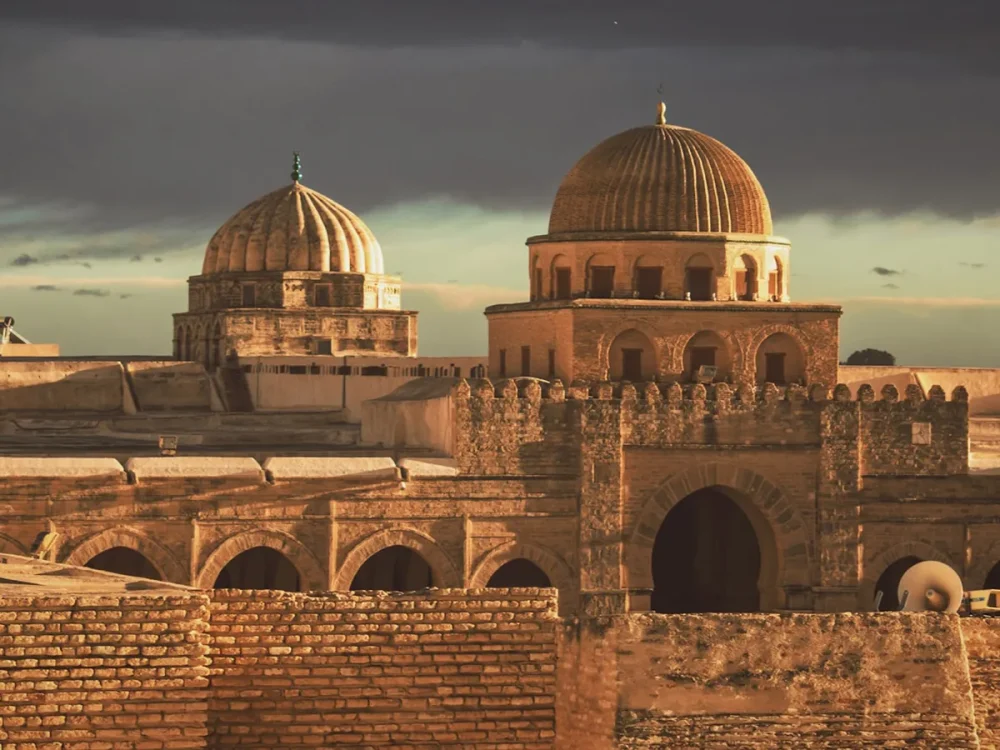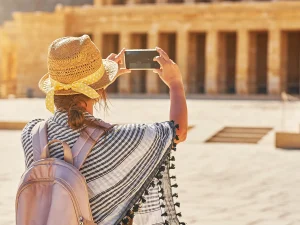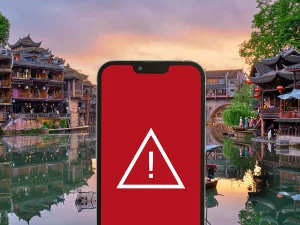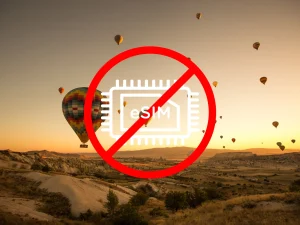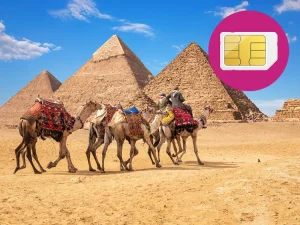Why choose Tunisia?
Tunisia is a true Mediterranean gem: Roman ruins, Berber villages, desert oases and golden beaches all packed into a single destination.
This small North African country will surprise you with its extraordinary blend of culture, history and nature—enhanced by genuine hospitality and affordable prices.
Whether you’re after a relaxing beach break, cultural discovery or an off-the-beaten-track desert adventure, Tunisia is a perfect all-round destination.
When to visit Tunisia: the best time to go
Tunisia has a Mediterranean climate along the coast and a desert climate inland. The best time to go depends on the area you plan to explore and your ideal trip to Tunisia:
- Spring (March–May): warm but not too hot—perfect for visiting cities, ruins and desert landscapes.
- Autumn (September–November): ideal temperatures for both the beach and excursions in the south.
- Summer (June–August): very hot—great for beach holidays, but avoid the interior unless you’re used to extreme heat.
- Winter (December–February): mild on the coast and a good time to visit southern Tunisia and its cities.
10 unmissable places to visit in Tunisia
Tunis
The capital is the perfect starting point. The Medina is a maze of alleys, souks, mosques and palaces. The Bardo Museum houses one of the world’s most important collections of Roman mosaics!
Nearby, don’t miss the ruins of Carthage and the blue-and-white charm of Sidi Bou Said.
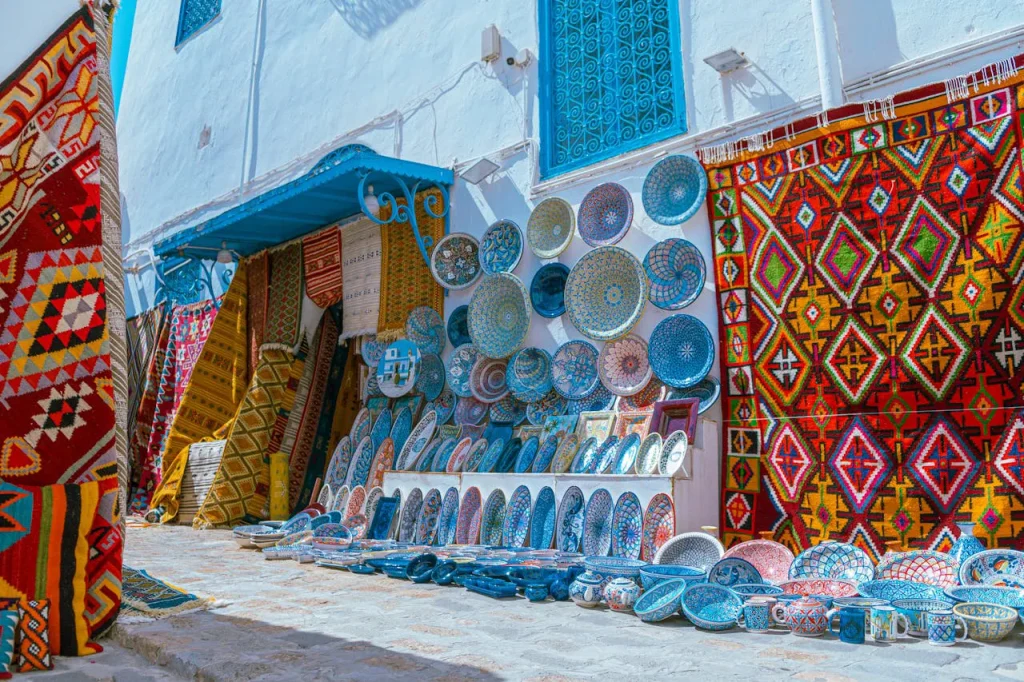
Carthage
Once a Phoenician then a Roman city, Carthage tells the story of centuries of civilisation. Wander among the columns of the Forum, the Antonine Baths and the amphitheatre, all with breathtaking sea views.
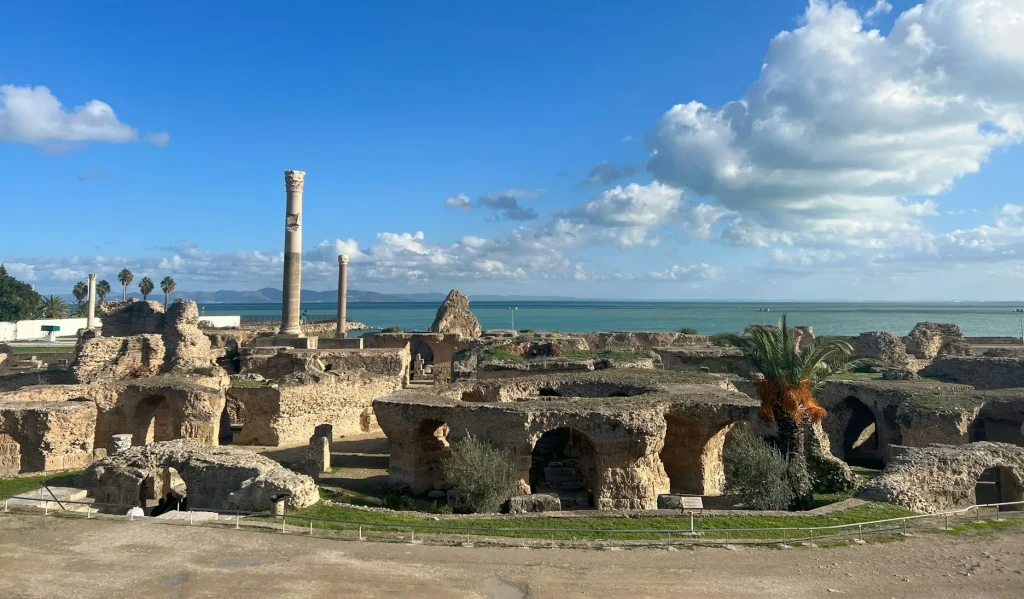
Sidi Bou Said
This clifftop village with its whitewashed buildings and blue doors is postcard-perfect. Ideal for a romantic stroll, photo ops and a scenic coffee break overlooking the sea.
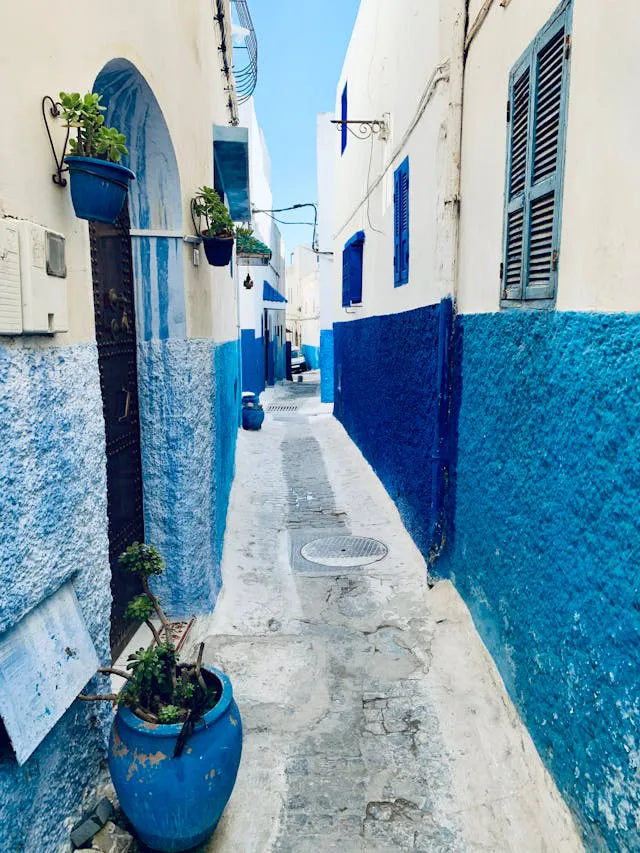
Hammamet
Famous for its golden beaches and luxury resorts, Hammamet also boasts a charming historic medina and jasmine-scented gardens. Perfect if you’re looking to unwind while soaking up a bit of culture.
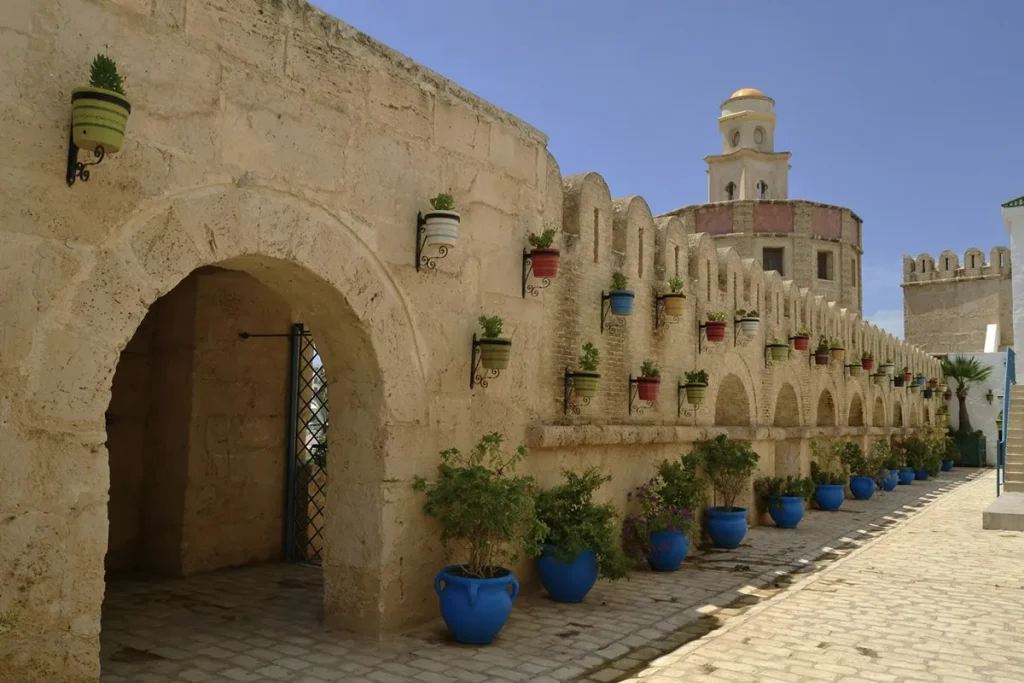
Kairouan
A UNESCO World Heritage Site and the fourth holiest city in Islam, Kairouan is home to one of the most important mosques in the Muslim world. It’s also famous for its handwoven carpets and spiritual atmosphere.
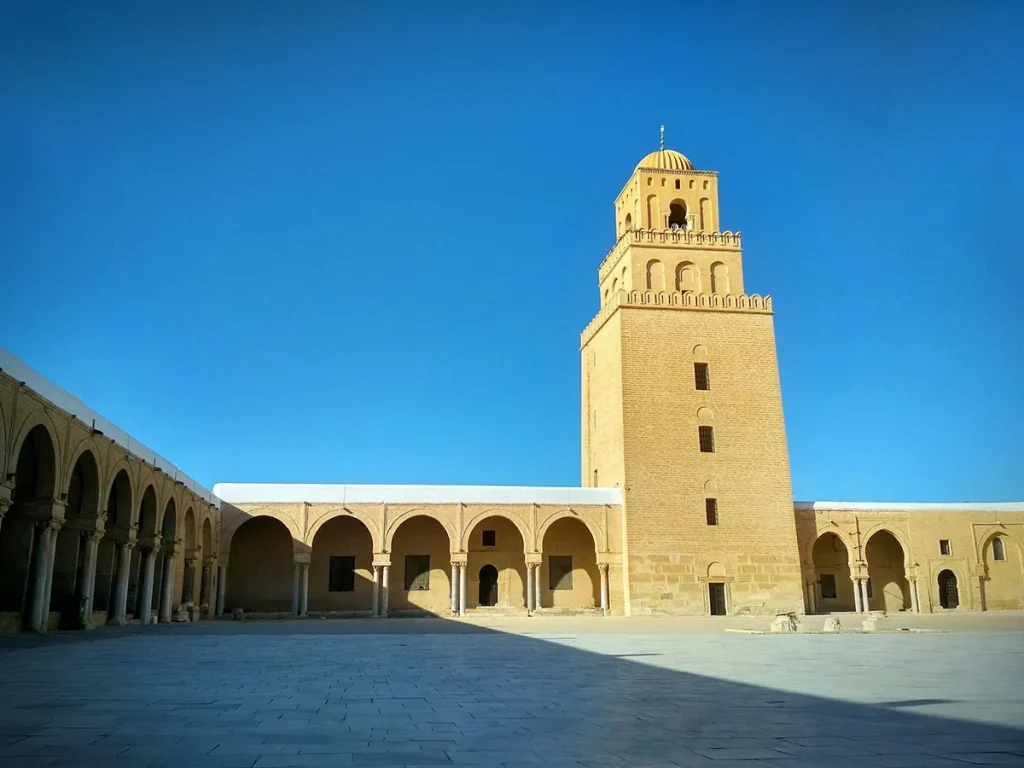
El Jem
This lesser-known gem is home to one of the best-preserved Roman amphitheatres, rivalled only by the Colosseum in Rome. A must-see for archaeology lovers, it’s set in a peaceful, fascinating town.
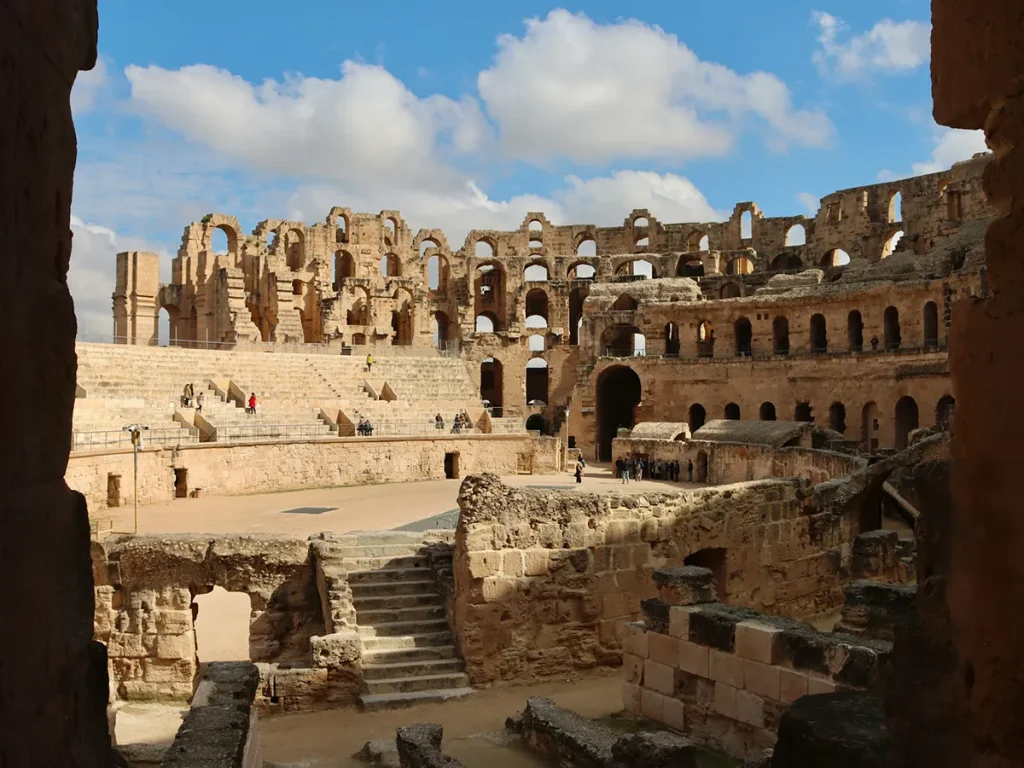
Matmata
Famous for its cave dwellings still inhabited today, Matmata feels otherworldly, so much so that it was chosen as a filming location for Star Wars. Sleep in a traditional Berber cave for a unique experience.
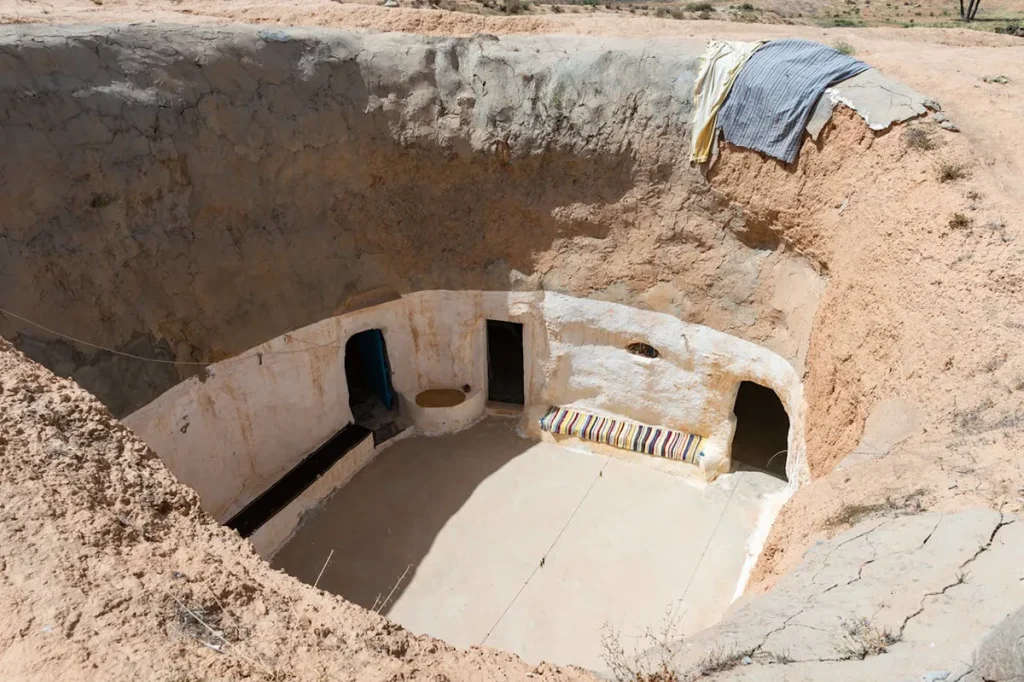
Douz
Known as the “Gateway to the Sahara”, Douz is the starting point for 4×4, camel or quad excursions into the desert dunes. Visit during the annual Sahara Festival for a burst of music, dance and nomadic traditions.
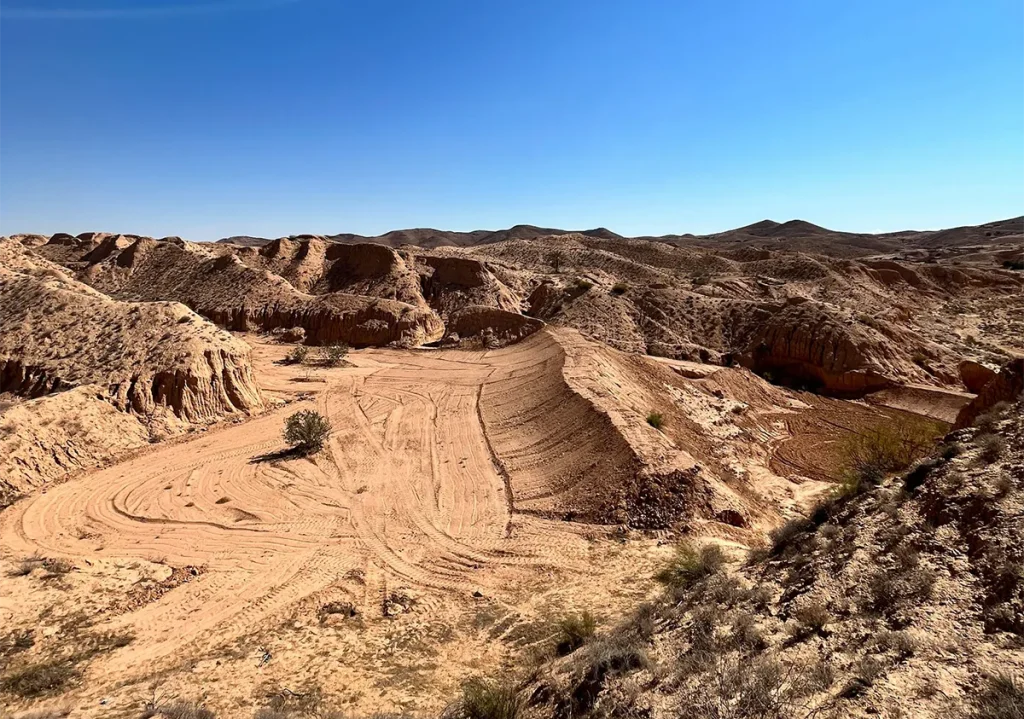
Tozeur
An oasis town of palm trees and sandy-brick architecture. From here you can visit Chott el Jerid, a shimmering salt lake, and the mountain villages of Tamerza and Chebika. It’s a magical blend of nature, culture and relaxation.
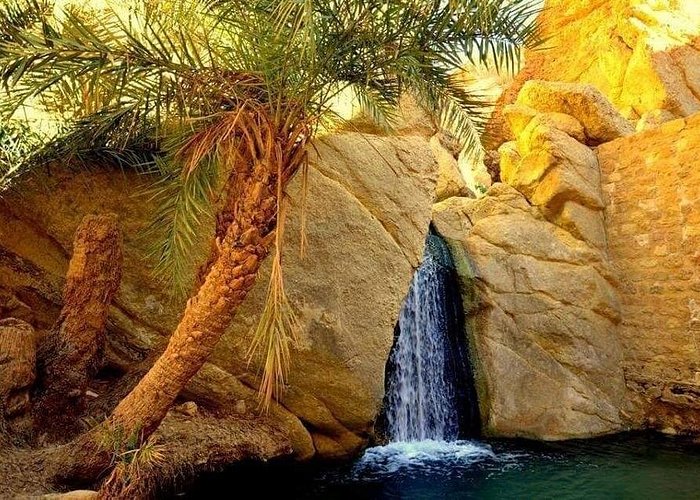
Djerba
This southern island paradise offers beaches, colourful souks, Berber and Jewish heritage. Visit the El Ghriba synagogue and explore Houmt Souk’s markets for a vibrant taste of Tunisian life.
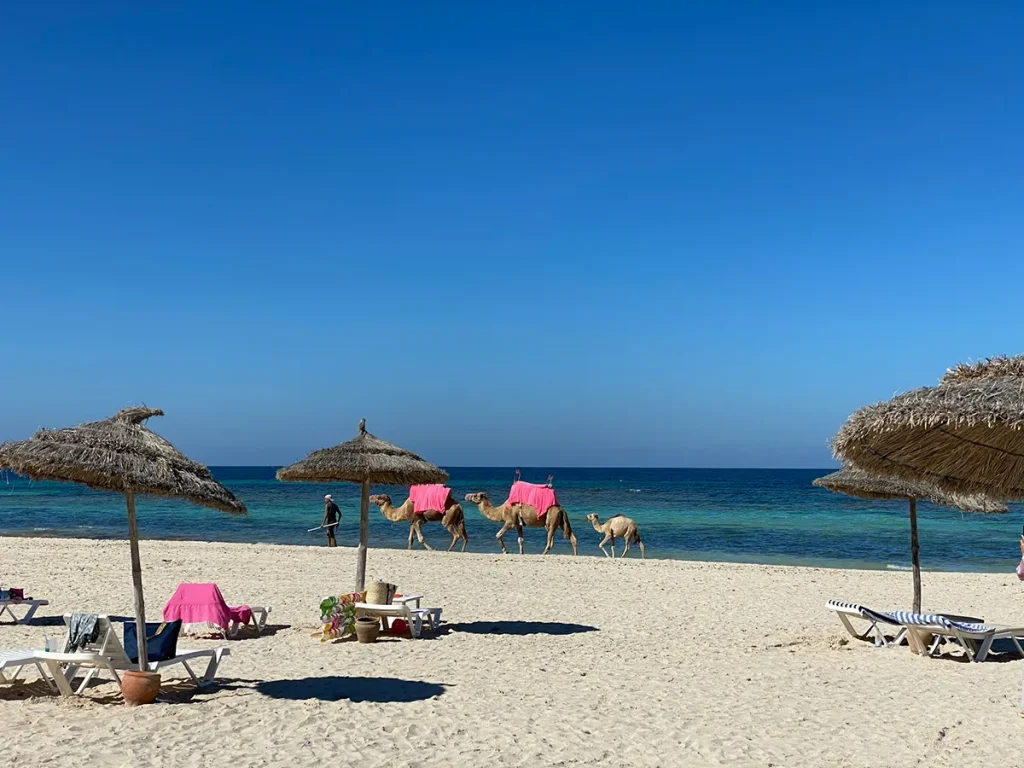
Top 10 experiences to try in Tunisia
- Sunset stroll through the Medina of Tunis
- Visit the Star Wars set in Matmata
- Swim in the warm waters of the Gulf of Gabes
- Get lost in the blue-and-white alleys of Sidi Bou Said
- Ride across the desert dunes of Douz
- Admire Roman mosaics at the Bardo Museum
- Hone your haggling skills in a traditional souk
- Try a local hammam experience
- Watch the sun set over the Sahara
- Taste authentic couscous (and don’t miss the almond sweets!)
How to stay connected in Tunisia
Whether you’re navigating, booking excursions, working remotely or sharing your trip online, a solid internet connection is essential.
Here are your main options for staying online:
- International roaming: All major providers offer this, but it’s often expensive and comes with data limits. Check your operator’s Tunisia-specific plans before you go.
- Public Wi-Fi: Available in cafés and hotels, but often unreliable or insecure.
- Local SIM cards: Generally affordable, but buying one can take time and paperwork—and you might not get the best offer right away.
- eSIMs: The easiest and most flexible option. Buy it before you travel and activate it as soon as you land, with full control over how much data you need.
Get internet in Tunisia with eSIM.sm
Visit www.esim.sm to purchase a Tunisia eSIM in just a few clicks. Choose the best plan for your needs, scan the QR code, and you’re online in seconds.
Before buying, make sure your phone is eSIM-compatible by checking our device list.
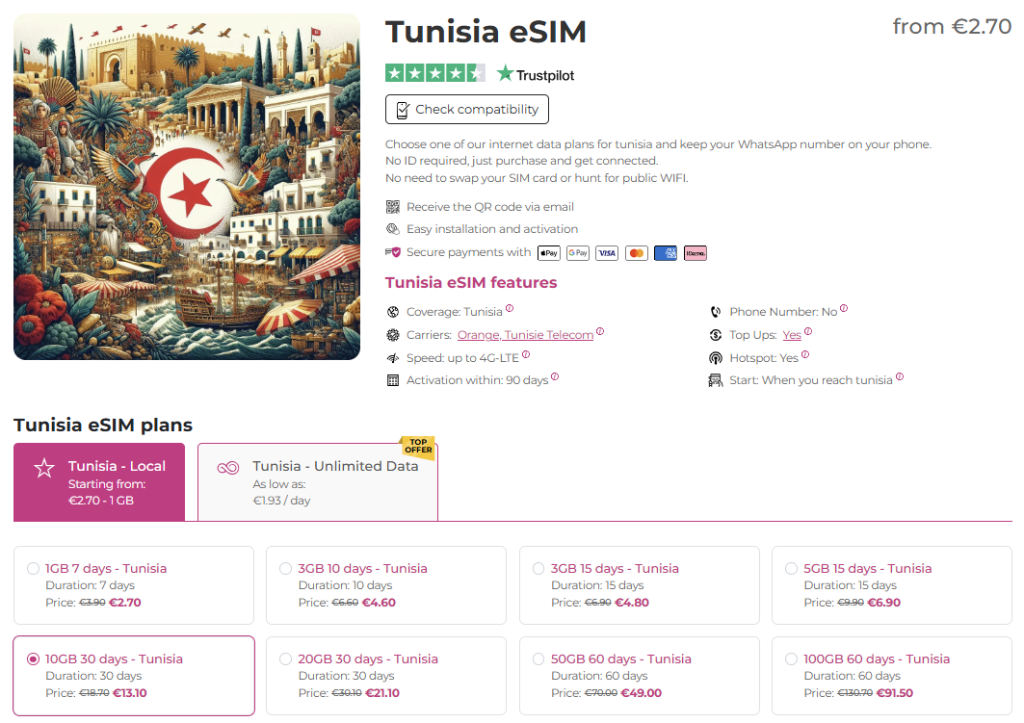
Why choose eSIM.sm?
- No need to replace your physical SIM
- Keep your regular number and use WhatsApp as usual
- Reliable 4G connection
- Choose between data packages or unlimited plans
- Instant activation upon arrival
- Transparent pricing with no hidden fees
- Recharge data anytime
- 24/7 multilingual support
Travel tips for Tunisia
- Dress modestly, especially in rural or religious areas. Women don’t need to dress like locals, but it’s best to keep it respectful.
- Drink bottled water only—make sure the seal is intact.
- Taxis: Ask drivers to use the meter, or agree on a fare beforehand.
- Currency: The Tunisian dinar is only available inside Tunisia. You’ll need to exchange your money locally.
- Safety: Generally good, but check local advice before heading into remote or desert areas.

